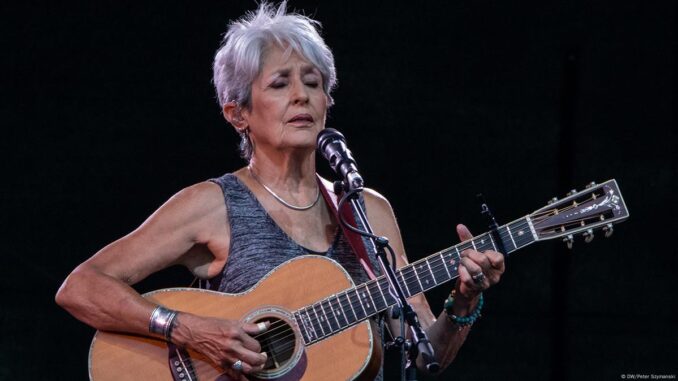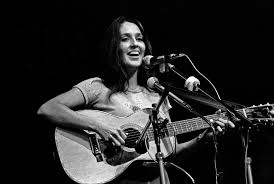
Joan Baez, born on January 9, 1941, in Staten Island, New York, grew up in California, where she was influenced by her activist parents. Her father was a physicist, and her mother, a Scottish immigrant, was a social worker. Baez was introduced to music early, initially playing piano but later choosing the guitar as her instrument. She began performing at 18, drawing from traditional folk music, with a voice that perfectly suited political protest songs.
In the 1960s, as folk music gained popularity, Baez became a leading figure. She used her music to support the Civil Rights Movement, performing songs like “We Shall Overcome” and “Oh Freedom.” Baez also became an outspoken critic of the Vietnam War, organizing anti-war rallies and engaging in peaceful protest, including an arrest for refusing to fund the war. Her activism was intertwined with her music, inspiring social change.
Baez was a trailblazer for women in the music indus try, breaking barriers in the male-dominated folk scene. She was also a prominent feminist, advocating for gender equality and reproductive rights, inspiring countless women to pursue careers in music and activism.
try, breaking barriers in the male-dominated folk scene. She was also a prominent feminist, advocating for gender equality and reproductive rights, inspiring countless women to pursue careers in music and activism.
Her musical style evolved over the years, incorporating rock, country, and pop, though she remained rooted in folk traditions. Known for her pure voice and emotionally resonant songwriting, Baez’s songs often featured literary devices like metaphor and symbolism.
Throughout her career, Baez collaborated with artists such as Bob Dylan, Joni Mitchell, and Jackson Browne, expanding her musical reach and advocacy. Her legacy, defined by her contributions to both music and social justice, continues to inspire artists and activists worldwide. At 80, she remains a powerful force for change.
Leave a Reply